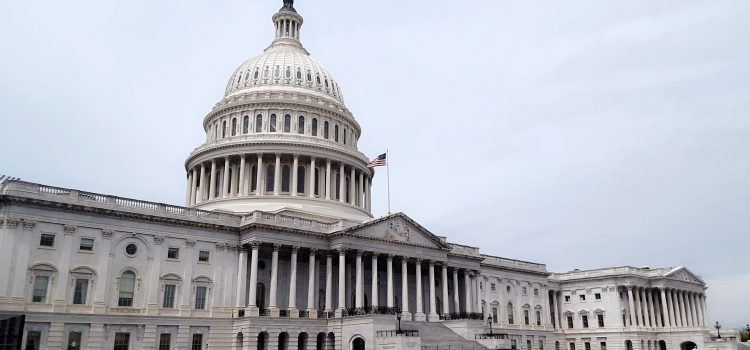

This article is an excerpt from the Shortform guide to "NPR News Now". Shortform has the world's best summaries and analyses of books, podcasts, and more.
Like this article? Sign up for a free trial here.
How is Congress going to avoid a government shutdown? What are the consequences of a shutdown if it does happen?
To avoid a government shutdown, Congress is working on bipartisan funding bills to keep services running and federal employees paid. However, some critics argue that these temporary funding bills are insufficient for addressing the greater issue of overspending.
Read this summary of a snippet from NPR News Now on the potential shutdown.
Congress Acts to Avoid a Government Shutdown
In the United States, Congress is working to avoid a government shutdown by working through funding issues. The current situation reflects the potential consequences of a shutdown, which occurs when Congress fails to pass appropriations bills or temporary funding measures, resulting in the suspension of non-essential government services and impacting federal employees, government contractors, and the economy.
Bipartisan cooperation and compromise are central to efforts to avert a government shutdown, with the House of Representatives passing a short-term funding bill with bipartisan support. Now, attention is turned to the Senate to consider a similar bill containing temporary funds for various government branches.
The Senate is expected to follow suit by considering a bill that provides temporary funds for specific government branches until January and others until February. This legislative effort has been spearheaded by House Speaker Mike Johnson, who collaborated closely with more conservative Republican colleagues to reach an agreement.
While passing these short-term funding bills would prevent an immediate shutdown, it does not address long-term budget planning or fiscal responsibility. Leadership plays a crucial role in facilitating bipartisan cooperation and finding common ground, in light of partisan politics and party dynamics shaping budget negotiations.
Looking ahead, if both chambers approve their respective short-term funding bills, it would temporarily sidestep a government shutdown. However, future funding deadlines will require ongoing negotiations and long-term budget planning. The potential repercussions of a shutdown on different sectors of society continue to be a significant consideration.
Understanding the impacts of past government shutdowns on federal employees and recognizing their causes due to Congress’s failure to pass appropriations bills or temporary funding measures helps provide context to the current events surrounding potential shutdown threats in US politics today.
| The Problem With Short-Term Funding Bills Recent attempts by the U.S. Congress to avoid a government shutdown using short-term funding bills may offer temporary respite but do not confront the root problems and dangers linked to the recurring threat of shutdowns. Although receiving bipartisan backing in the House is laudable, consensus in the Senate is not guaranteed, given contrasting priorities and issues that could hinder approval or lead to substantial modifications misaligned with the original purpose. Furthermore, banking on short-term fixes sustains a pattern of unpredictability and stopgap measures, impeding Congress from tackling the underlying causes of budget disputes and devising lasting resolutions. Another worrisome aspect is the restricted timeframe covered by these bills’ temporary funds. While certain government branches secure funding until January and others until February, there’s no guarantee that all agencies and programs will receive sufficient support, potentially causing disruptions to essential services and programs essential for public well-being. In addition, the opacity of the decision-making procedures raises concerns about inclusiveness and public involvement. Ensuring diverse viewpoints are taken into account when shaping bills that impact the entire nation is crucial. Furthermore, partisan biases may influence these legislative efforts. The involvement of specific political figures or groups in reaching an agreement raises concerns about whether these bills adequately represent the diverse needs and interests of all Americans. To foster effective governance and planning, comprehensive budgetary reforms should be prioritized over short-term extensions. Addressing structural issues such as wasteful spending reduction, revenue generation improvement, and fiscal responsibility promotion would contribute to long-term stability in government funding. |

———End of Preview———
Like what you just read? Read the rest of the world's best guides to NPR News Now" at Shortform.
Here's what you'll find in our full NPR News Now episode summaries:
- Condensed news stories from a respected public media organization
- All of the day’s key events wrapped up succinctly
- Coverage of up-to-date news stories even when you’re short on time






